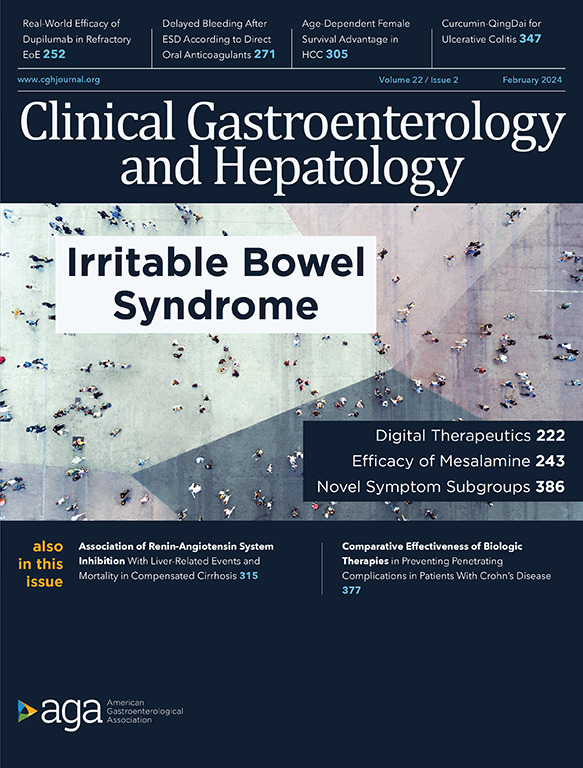Lifestyle and Pharmacologic Approaches to Prevention of Metabolic Dysfunction-associated Steatotic Liver Disease-related Hepatocellular Carcinoma
IF 12
1区 医学
Q1 GASTROENTEROLOGY & HEPATOLOGY
引用次数: 0
Abstract
Hepatocellular carcinoma (HCC) is a major concern for public health. Fatty liver disease, related to alcohol misuse or metabolic syndrome, has become the leading cause of chronic liver disease and HCC. The strong association between type 2 diabetes mellitus and HCC can be partly attributed to the development of metabolic dysfunction-associated steatotic liver disease (MASLD). There is a strong interest in strategies that may mitigate HCC risk and reduce HCC incidence in this growing population of at-risk individuals. In this review, we describe the pathogenesis of HCC in patients with MASLD and discuss potential emerging pharmacological and lifestyle interventions for MASLD-related HCC. HCC risk has been observed to be lower with healthy lifestyle behaviors, such as healthy dietary patterns (eg, high consumption of vegetables, whole grains, fish and poultry, yogurt, and olive oil, and low consumption of red and processed meats and dietary sugar) and increased physical activity. Selecting an appropriate pharmacologic approach for individuals with MASLD may also decrease the occurrence of HCC. Metformin, PPAR activators, sodium-glucose cotransporter 2 inhibitors, dipeptidyl peptidase-4 inhibitors, glucagon-like peptide-1 receptor agonists, aspirin, and statins have all shown promise to reduce the risk of HCC, although guidelines do not recommend their use for the sole purpose of chemoprevention at this time, given a dearth of data defining their risk-benefit ratio.
生活方式和药理学方法预防masld相关性HCC。
肝细胞癌(HCC)是公众健康关注的主要问题。脂肪肝与酒精滥用或代谢综合征有关,已成为慢性肝病和HCC的主要原因。2型糖尿病与HCC之间的密切联系部分归因于代谢功能障碍相关的脂肪变性肝病(MASLD)的发展。在这一不断增长的高危人群中,人们对降低HCC风险和降低HCC发病率的策略有着浓厚的兴趣。在这篇综述中,我们描述了MASLD患者HCC的发病机制,并讨论了MASLD相关HCC的潜在药物和生活方式干预措施。已观察到,健康的生活方式行为(如健康的饮食模式,如多食用蔬菜、全谷物、鱼和家禽、酸奶和橄榄油,少食用红肉和加工肉类以及膳食糖)和增加体育活动,可降低HCC风险。为肝病和糖尿病患者选择合适的抗糖尿病治疗也可能减少HCC的发生。二甲双胍、PPAR激活剂、钠-葡萄糖共转运蛋白2 (SGLT2)抑制剂、二肽基肽酶-4 (DPP-4)抑制剂、胰高血糖素样肽-1受体激动剂(GLP-1RA)、阿司匹林和他汀类药物都显示出降低HCC风险的希望,尽管由于缺乏确定其风险-收益比的数据,目前指南不建议将其用于化学预防的唯一目的。
本文章由计算机程序翻译,如有差异,请以英文原文为准。
求助全文
约1分钟内获得全文
求助全文
来源期刊
CiteScore
16.90
自引率
4.80%
发文量
903
审稿时长
22 days
期刊介绍:
Clinical Gastroenterology and Hepatology (CGH) is dedicated to offering readers a comprehensive exploration of themes in clinical gastroenterology and hepatology. Encompassing diagnostic, endoscopic, interventional, and therapeutic advances, the journal covers areas such as cancer, inflammatory diseases, functional gastrointestinal disorders, nutrition, absorption, and secretion.
As a peer-reviewed publication, CGH features original articles and scholarly reviews, ensuring immediate relevance to the practice of gastroenterology and hepatology. Beyond peer-reviewed content, the journal includes invited key reviews and articles on endoscopy/practice-based technology, health-care policy, and practice management. Multimedia elements, including images, video abstracts, and podcasts, enhance the reader's experience. CGH remains actively engaged with its audience through updates and commentary shared via platforms such as Facebook and Twitter.

 求助内容:
求助内容: 应助结果提醒方式:
应助结果提醒方式:


